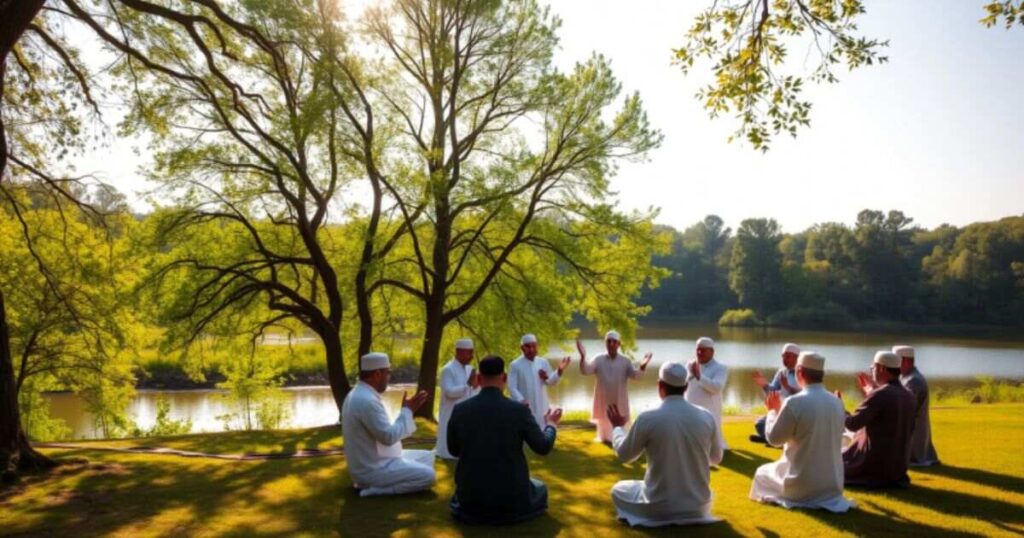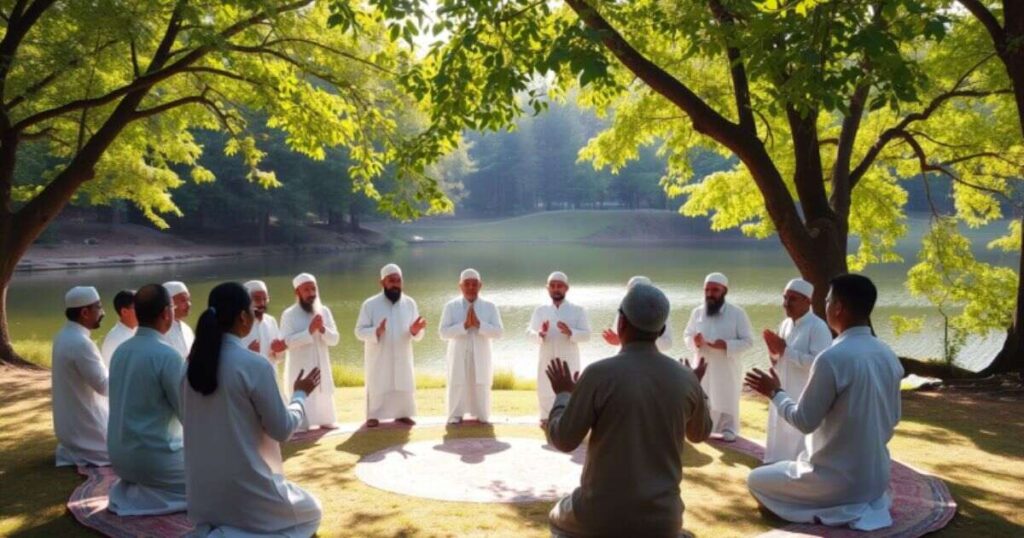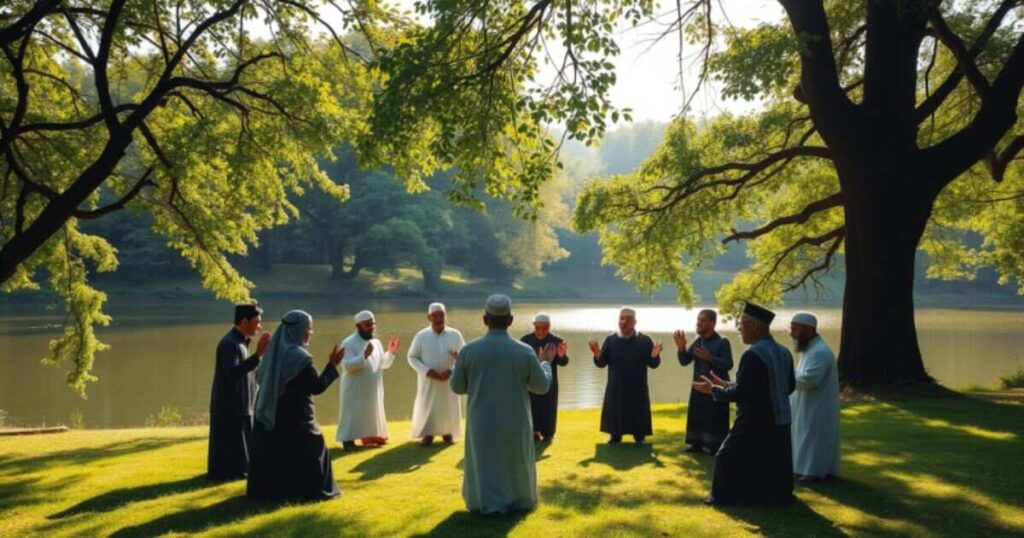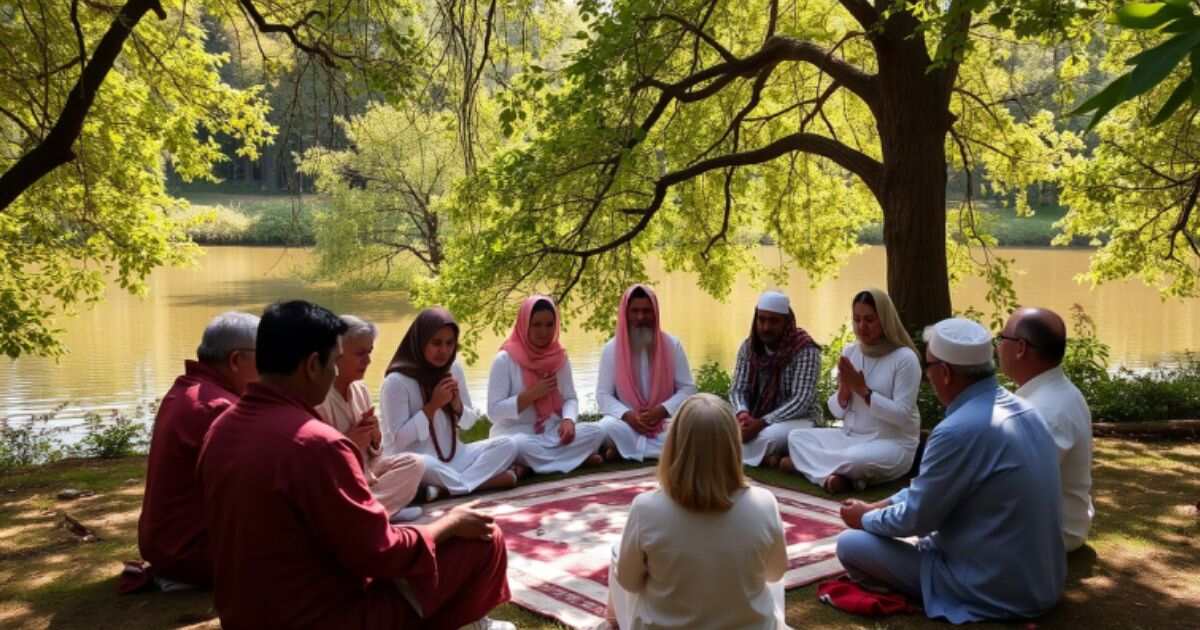Life today moves so fast.Between constant notifications, deadlines, and distractions, it’s easy to forget our ultimate purpose worshiping Allah. That’s where Zikr Rhythm comes in. Zikr, or the remembrance of Allah, isn’t just an occasional act; it should become a steady rhythm in your day a spiritual anchor keeping you grounded.
The Power of Zikr in a Busy World
In Islam, dhikr is more than words it’s life. Saying SubhanAllah, Alhamdulillah, or La ilaha illallah with sincerity realigns your soul with your Creator. But in order to truly benefit from its light, you need consistency. And that’s what we mean by “Zikr Rhythm” making dhikr a part of your daily spiritual beat.
Let’s explore how you can turn simple remembrance into a powerful spiritual habit that reshapes your heart, your mind, and your connection with Allah.
What Is Zikr Rhythm?
Zikr Rhythm isn’t a term you’ll find in classical texts, but its essence is rooted in Islamic tradition. It’s the idea of incorporating dhikr remembrance of Allah into the daily fabric of your life. Like a heartbeat, it pulses through your actions, words, and thoughts, reminding you that Allah is always near.Rather than remembering Allah only in salah or during hardship, remembrance routine encourages ongoing awareness. Whether you’re commuting, cooking, working, or resting, you can use dhikr to draw closer to Allah. This approach transforms mundane routines into worship, elevating your entire day spiritually.
So, Remembrance Routine isn’t about reciting a certain number of phrases mechanically. It’s about consciously syncing your life with the remembrance of your Lord.
Why Dhikr Matters So Much
Dhikr holds a high status in Islam. In Surah Al Ahzab 33.41, Allah commands,
“O you who have believed, remember Allah with much remembrance.”
The Prophet Muhammad also emphasized the immense reward of dhikr. He said,
“Shall I not inform you of the best of your deeds… and that which elevates your ranks the most… It is the remembrance of Allah.” Tirmidhi
Clearly, dhikr isn’t just a side act of worship it’s core to our faith. It purifies the heart, repels Shaytaan, softens the soul, and earns immense reward even with little effort.
That’s why developing your own Remembrance Routine is so essential.

Daily Moments Perfect for Dhikr
You don’t need a special time or place to remember Allah. The Prophet taught dhikr for morning, evening, after salah, and even before sleep. But beyond that, you can incorporate dhikr into dozens of everyday moments:
- While walking
- During house chores
- In your commute
- Before meetings
- After meals
- Before exams or interviews
- During difficult moments
The idea is to replace empty thoughts or anxiety with remembrance. Over time, this creates spiritual stability your soul begins to find rest through Remembrance Routine.
Make Dhikr Personal, Not Robotic
One reason people struggle to maintain dhikr is because it feels repetitive or detached. But dhikr should be heartfelt, not robotic.
Instead of simply saying SubhanAllah out of habit, pause and reflect, Am I really glorifying Allah right now? Feel the weight of each phrase:
- SubhanAllah ,Allah is perfect.
- Alhamdulillah All praise belongs to Allah.
- Allahu Akbar Allah is greater than all my problems.
When you personalize your dhikr, you turn simple phrases into heartfelt conversations with your Lord. That’s how remembrance routine becomes transformational.
Start with Morning and Evening Remembrance
To build your remembrance routine, begin and end your day with dhikr. The Prophet emphasized morning and evening adhkar as spiritual shields.
Recite,
- Ayat al Kursi
- Surah Ikhlas, Falaq, and Nas 3x
- La ilaha illallah wahdahu la sharika lahu.100 times daily
- Astaghfirullah wa atubu ilayh,for repentance
These acts not only protect you but also bring barakah into your daily routine. Starting your day with dhikr aligns your heart and gives you peace even when life gets chaotic.

Zikr During Stressful Moments
Let’s face it life throws unexpected trials. And during those moments, Shaytaan wants you to feel overwhelmed, anxious, or even hopeless.
But Zikr Rhythm can rescue you. When stressed, pause and say:
- Hasbiyallahu la ilaha illa Huwa Allah is sufficient for me.
- La hawla wa la quwwata illa billah There is no power except by Allah.
You’ll feel lighter because your heart has reconnected to the One in control.
Use Technology to Build Your Zikr Rhythm
While smartphones often distract us, they can also support your spiritual growth. Set dhikr reminders using apps like:
- Muslim Pro
- Hisnul Muslim
- Islamicly
- Zikr Counter apps
You can even create wallpaper with powerful adhkar or set daily alarms that whisper dhikr to you. That way, your devices help you remember Allah not forget Him.
Turn Travel Time into Worship
Every minute you spend driving, riding a bus, or walking can become worship. Instead of scrolling aimlessly or daydreaming, recite dhikr silently.Just imagine you could be earning Jannah rewards on your way to work simply by repeating SubhanAllah wa bihamdihi, SubhanAllahil azeem.That’s the power of remembrance routine it doesn’t require extra time. Just presence.
Group Dhikr. Sharing the Blessing
While dhikr is often a personal act, the Prophet also encouraged group remembrance. He said:“Whenever a group gathers in the houses of Allah to recite His Book and remember Him, tranquility descends upon them.MuslimConsider joining a local dhikr circle or having a weekly gathering with family. Sharing Zikr Rhythm with others not only strengthens your memory but also builds community bonds rooted in iman.
Consistency Is the Key
Here’s the golden rule: consistency beats intensity. Even if you only manage a few minutes of dhikr each day, if it’s consistent, it will nourish your soul.
Build your remembrance routine gradually,
- Start with 5 minutes in the morning
- Add a short evening dhikr
- Attach dhikr to daily tasks e.g., brushing teeth, before sleep.
Eventually, your soul will crave dhikr the way your body craves water. And that’s when Zikr Rhythm becomes a true spiritual anchor.
Frequently Asked Questions
1. What does “Zikr Rhythm” mean in Islam?
It means maintaining a consistent, meaningful practice of remembering Allah throughout the day.
2. Is dhikr only for specific times like after salah?
No, dhikr can be done at any time, even while doing chores or walking.
3. Can I say dhikr without wudu?
Yes, most dhikr doesn’t require wudu, except for Qur’an recitation from the mushaf.
4. Does dhikr help with anxiety?
Yes. Dhikr brings calmness, as mentioned in Surah Ar Ra’d, “Verily in the remembrance of Allah do hearts find rest.”
5. How can I keep dhikr consistent daily?
Use phone reminders, attach dhikr to tasks, and start small but steady.
You may also like:PrayerTechy
6. Are there dhikr apps to help me?
Yes. Muslim Pro, Hisnul Muslim, and Zikr Counter apps are helpful tools.
7. What is the reward of saying SubhanAllah 100 times?
It earns immense rewards and erases sins, as stated in authentic hadiths.
8. Can children learn remembrance routine too?
Absolutely! Teach them short phrases like Alhamdulillah and let them repeat after you.
9. Is silent dhikr accepted?
Yes, both silent and vocal dhikr are valid and beloved to Allah.
10. What’s the best dhikr to start with?
Start with SubhanAllah, Alhamdulillah, Allahu Akbar, and La ilaha illallah.
You may also like:PrayerTechy

Conclusion
Zikr Rhythm is your key to staying spiritually grounded in a noisy world. It doesn’t require extra time just a shift in focus. Whether you’re busy or resting, you can turn each moment into remembrance of Allah. Start small, be consistent, and let dhikr transform your inner state. The more you align your life with Zikr Rhythm, the more peace, clarity, and barakah you’ll experience.Don’t wait for the perfect moment. Begin now and let Allah’s remembrance become the rhythm that guides your soul.
You may also like:PrayerTechy

Hi I’m Hamza Basharat SEO content writer with 4 years of experience and founder of PrayerTechy.com. I combine faith and strategy to help people discover how to pray with purpose, using well optimized, impactful content rooted in scripture and spiritual growth.


